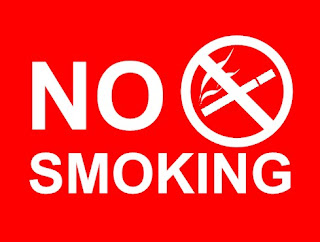
People were smoking in five out of six Paceville bars visited by The Sunday Times last Wednesday night. In one instance, the reporter saw a patron order a drink while lighting up.
And despite figures showing increased police enforcement of the ban, The Sunday Times photographed two police officers sharing soft drinks with a young woman as she smoked openly inside the Bay Street complex on December 2.
Malta was the second EU state to introduce an indoor smoking ban, having done so in April 2004, but there is a widespread perception that the ban is disregarded by many bar and nightclub patrons.
A study published two weeks ago revealed that in contrast to other countries, Malta’s smoking ban has not led to any decrease in hospital admission or mortality rates due to heart disease.
The study’s lead author, cardiologist Robert Xuereb, attributed the disappointing findings to lax enforcement of ban in places of entertainment.
But the president of the General Retailers and Traders Union Hospitality and Leisure Division, Philip Fenech, said that contrary to perception, bars in entertainment hotspots went out of their way to enforce the smoking ban.
“In certain places there is full enforcement of the ban. In fact, reports from certain establishments – especially in Paceville – indicate that police are going in and out too often.”
Mr Fenech conceded, however, that in other areas, enforcement of the smoking ban was “very, very slack”.
Statistics reveal that police have significantly upped efforts to enforce the ban over recent years. In 2004, police charged just 19 people with smoking infractions. Last year, the figure was 2,185.
People found guilty of breaking the smoking ban are slapped with a €233 fine. Establishments where people are caught smoking are also liable to penalties, but an agreement between the GRTU and the authorities protects larger establishments from prosecution, explained Mr Fenech.
“If an establishment is large enough to make it impossible for bar staff to monitor patrons’ behaviour, has clear ‘no smoking’ signage and no ashtrays or smoking provisions, then it will not be considered responsible for a patron smoking.”
This agreement does not apply to smaller establishments where staff could clearly keep an eye on customers, Mr Fenech added.
Part of the blame for the failure of an
anti-smoking culture to take root is cultural, said sociologist Albert Bell. “Many northern nations identify much more strongly with the state and see laws as protecting them. We’re a much more family-centred society.”
As a result, Maltese often perceive laws as “foreign and imposed,” said Dr Bell, who heads the university’s department of youth and community studies. “The sense of detachment loosens our moral binds to the law and makes it easier for people to undertake deviant behaviour.”
In a diplomatically-worded statement, the Health Ministry said that while workplaces seemed to comply with the smoking ban, “other areas in the leisure industry” needed to do so too.
In Dr Bell’s opinion, having an effective, well-enforced smoking ban “will take time”.
He drew parallels with seatbelt legislation, which had drawn significant ire when first introduced in the 1990s but was now broadly accepted.
“I would expect the smoking ban to become better enforced over time. It is unrealistic to expect police to somehow monitor every bar’s patrons – a successful ban will only come about through greater auto-regulation and more peer pressure to observe the rules,” Dr Bell said.
Questions sent to the police, as is often the case, remained unanswered.































